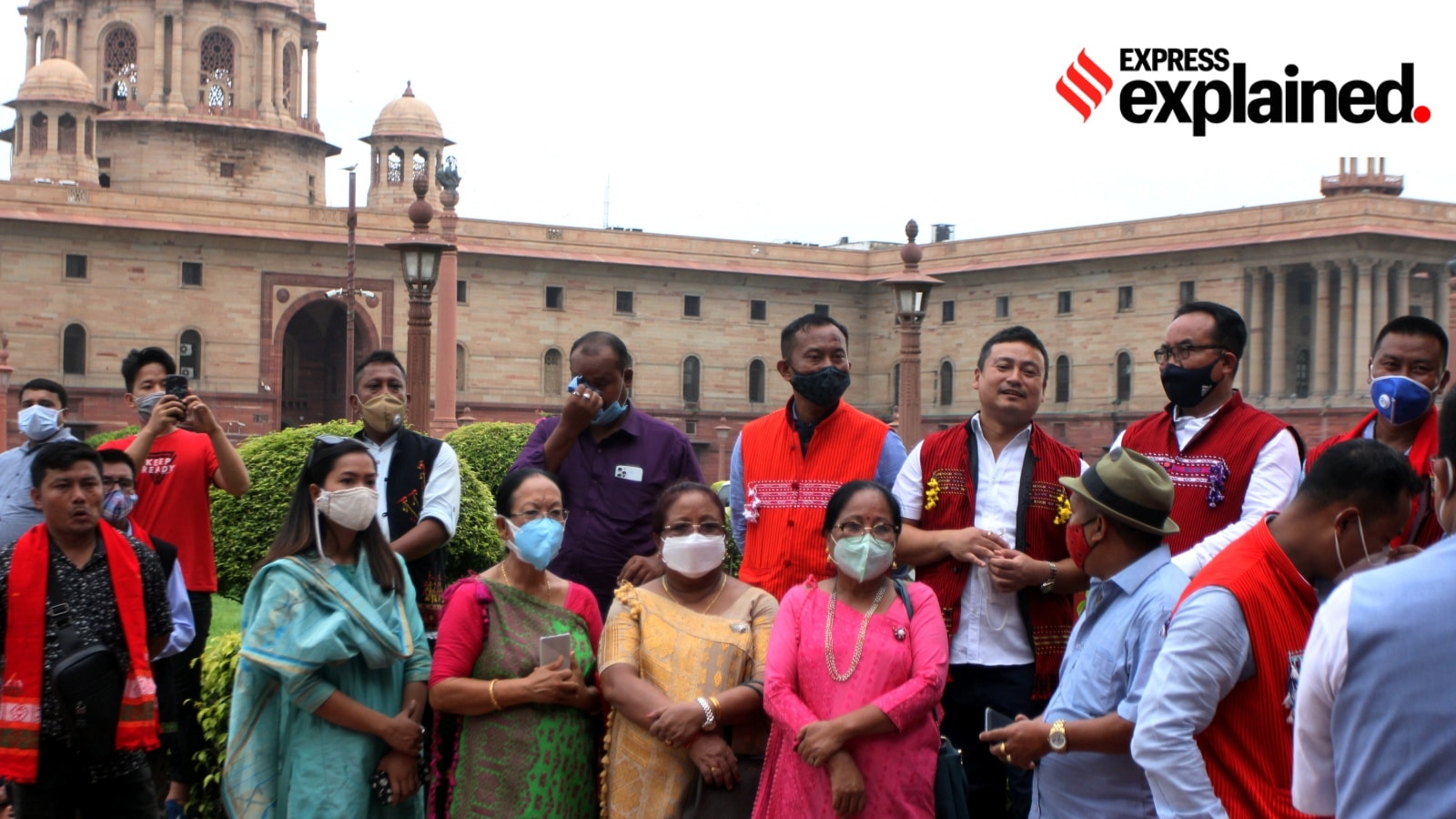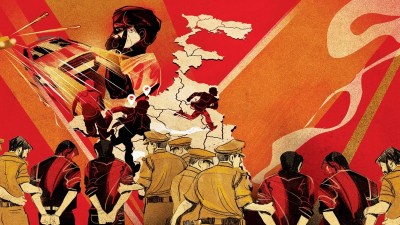In Assam’s tribal-majority Diphu Lok Sabha constituency, which votes on April 26, candidates of all parties have promised the implementation of Article 244(A) of the Constitution to create an autonomous ‘state within a state’.
This, in fact, has been the primary election promise in Diphu for decades. What is Article 244(A) of the Constitution, and why is it important in this constituency?

Where is Diphu, and what is the social profile of this Lok Sabha constituency?
Diphu is the most sparsely populated of Assam’s 14 Lok Sabha constituencies, with just 8.9 lakh voters. It is reserved for Scheduled Tribes (STs), and covers six legislative Assembly segments in three tribal-majority hill districts of Assam: Karbi Anglong, West Karbi Anglong, and Dima Hasao.
These three districts are administered under the provisions of the Sixth Schedule of the Constitution, which describes the “Provisions as to the Administration of Tribal Areas in the States of Assam, Meghalaya, Tripura and Mizoram”.
These areas come under two autonomous councils: the Karbi Anglong Autonomous Council (KAAC) and the North Cachar Hills Autonomous Council. Voters at the seat belong to various communities: Karbi, the third largest tribe in the state, Dimasa, Hmar, Kuki, Rengma Naga, Zeme Naga, Bodo, Garo, Assamese, Bengali, Bihari, Gorkha, etc.
However, the seat has been represented by members of the Karbi community since 1977. Currently, all Assembly segments under the Diphu seat are with the BJP.
What is Article 244(A) of the Constitution?
Article 244(A) was inserted by The Constitution (Twenty-second Amendment) Act, 1969, which enabled Parliament to pass an Act to “form within the State of Assam an autonomous State comprising (whether wholly or in part) all or any of… [certain specified] tribal areas”, including Karbi Anglong.
Story continues below this ad
This autonomous state would have its own Legislature or Council of Ministers or both. This provision goes a step further than the provisions under the Sixth Schedule, which are already in place in these areas.
The autonomous councils under the Sixth Schedule have elected representatives for more decentralised governance of these tribal areas, but they have limited legislative powers, do not have control over law and order, and have only limited financial powers.
When did the demand for autonomy start, and how has it played out so far?
The demand for autonomy is as old as the movement in the hill areas of undivided Assam, which began in the 1950s, seeking a separate hill state. This movement resulted in the creation of the full-fledged state of Meghalaya in 1972 — however, because of the promise extended through Article 244(A), the leaders of the Karbi Anglong region opted to remain with Assam.
Story continues below this ad
The Autonomous State Demand Committee (ASDC) — which was set up as a mass organisation to press for the region’s autonomy, and which continues to operate today — along with student bodies in the region, signed a Memorandum of Settlement with the state and central governments in 1995 for enhancing the powers of the two autonomous councils in the region by increasing the number of departments under their charge to 30 from 10.
The erstwhile Autonomous District Lok Sabha seat was represented by Jayanta Rongpi from 1991 to 1998 as a candidate of the ASDC. The ASDC has a candidate for the Diphu seat in the current election as well.
However, over the years, as autonomy for the region remained elusive, the demand for implementation of Article 244(A) also took the form of an armed insurgency. The BJP-led governments in Delhi and Guwahati have signed several peace accords with militant groups, including with the Karbi and Dimasa.
In 2021, a peace settlement was reached with five militant groups in Karbi Anglong — Karbi People’s Liberation Tigers, People’s Democratic Council of Karbi Longri, Karbi Longri NC Hills Liberation Front, Kuki Liberation Front, and United People’s Liberation Army — under which greater autonomy and a special development package of Rs 1,000 crore over five years were promised.
Story continues below this ad
Last year, an agreement was signed with the Dimasa National Liberation Army along the same lines.
What are political parties promising now?
The signing of the peace settlements has not succeeded in putting the lid on discussions around Article 244(A). The outgoing BJP MP from Diphu, Horen Sing Bey, is himself a former Karbi militant, who was general secretary of the United People’s Democratic Solidarity, which had signed a Memorandum of Settlement in 2011 with the Centre and the state for enhanced autonomy and special packages for the KAAC.
During the 2019 campaign, Horen Sing Bey spoke of his dedication to autonomy demand by drawing on his days as a leader of the insurgency. All other candidates, however, focused on the implementation of Article 244(A) as their primary campaign plank.
The BJP candidate for Friday’s election is Amarsing Tisso, a KAAC Executive Member. He has presented a constituency-specific manifesto, the first promise of which is the implementation of Article 244(A). It claims that while the “BJP has been seizing all available opportunities to campaign in New Delhi for its (Article 244(A)) implementation…others only criticize unmindful of their own inaction…”
Story continues below this ad
Holiram Terang, a veteran member of the ASDC and its candidate in the 2019 Lok Sabha election, said: “In every election, every political party highlights this issue, but once the election is done, there is never any forward movement. Even if the BJP candidate, or any other candidate, promises it here, the party itself is not with them. Not a single party mentions it in their national manifesto… The basic attitude of successive governments in the state and at the Centre has not been to grant more autonomy but to try and take powers back.”








































